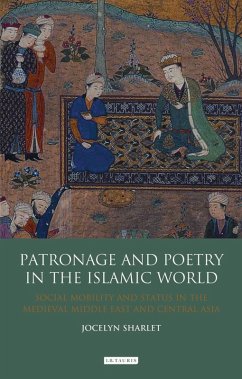Panegyric poetry, in both Arabic and Persian, was one of the most important genres of literature in the medieval Middle East and Central Asia. Jocelyn Sharlet argues that panegyric poetry is important not only because it provides a commentary on society and culture in the medieval Middle East, but also because panegyric writing was one of the key means for individuals to gain social mobility and standing during this period. This is particularly so within the context of patronage, a central feature of social order during these times. Sharlet places the medieval Arabic and Persian panegyric firmly within its cultural context, and identifies it as a crucial way of gaining entry to and movement within this patronage network. This is an important contribution to the fields of pre-modern Middle Eastern and Central Asian literature and culture.
Dieser Download kann aus rechtlichen Gründen nur mit Rechnungsadresse in A, B, BG, CY, CZ, D, DK, EW, E, FIN, F, GR, HR, H, IRL, I, LT, L, LR, M, NL, PL, P, R, S, SLO, SK ausgeliefert werden.

